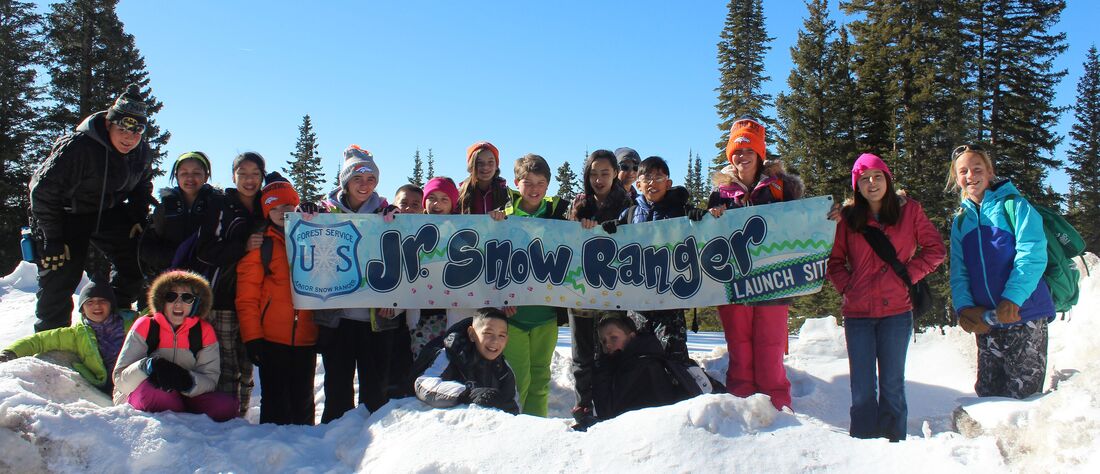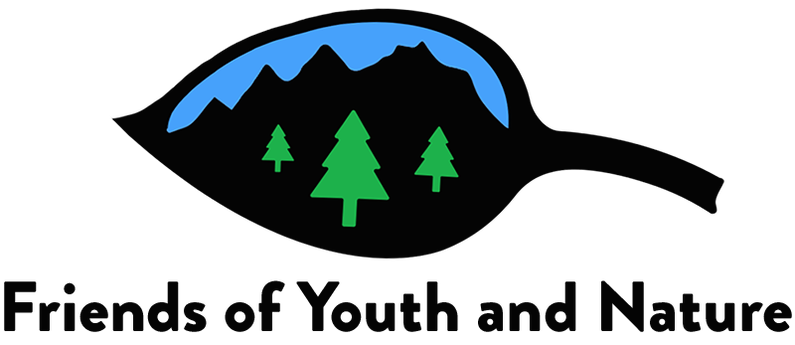|
Tips to help you connect your family to nature!
|
|
Yes − there are rangers that specialize in snow! Their jobs involve protecting the natural environment, evaluating snow conditions for avalanches and providing warnings of avalanche danger, monitoring snow accumulation to predict spring runoff, skiing/boarding down ski areas to make sure everyone is safe, protecting wildlife and their winter habitats from disturbance, and; search and rescue when people go missing. What does a job like this require? A keen interest and knowledge of earth science and a passion for winter and the outdoors are a must. Most snow rangers develop a love of winter at an early age and continue to build personal experiences in the outdoors eventually pursuing academic classes and other certifications. The key is developing a love for winter and the outdoors at an early age, and that is what the Junior Snow Ranger Program is all about.
Developed by the US Forest Service in 2012, the Junior Snow Ranger program is intended to inspire youth to embrace a relationship with the winter environment, and to become stewards of the land. The Junior Snow Ranger activity booklet is targeted for 4th and 5th graders, however, children and adults of all ages can take away something from the program. You can download the booklet by searching the web for “Junior Snow Ranger”, which takes you to a Forest Service webpage. When the booklet is completed, parents can mail in the certificate and your child will receive an official Junior Snow Ranger bandana, card and patch. The booklet is filled with activities that will help you and your child learn about the winter environment such as: how to become a snowflake sleuth, how to identify animal tracks in snow and how to observe what’s happening in their “hood.” There are plenty of things to observe in nature this time of year! Surprisingly you can spot quite a few critters that are very active in the winter months. These animals have strategies to help them survive cold temperatures and short days. You may observe a short- tailed weasel or a snowshoe hare whose coats have amazingly transformed from the dull browns of summer to pure white! They are now camouflaged to visually blend in with the snow in order to protect themselves from predators. Many animals add to their insulation this time of year with thicker fur, puffier feathers or extra layers of fat. These are just a few of the “cool” adaptations animals have in winter. Ever wonder how avalanches happen? The Junior Snow Ranger Booklet explains the science of snow and how strong snow layers on top of weak layers within the snowpack can be triggered to slide. The booklets even provides instructions on how to create your own avalanche. And you can meet Cutler, the avalanche rescue dog! People have been having fun in winter for years! Over 5,000 years ago people of Nordic and Asian cultures watched snowshoe hares and lynx easily travel across the snow with their huge feet. They figured a way to make their own snowshoes, and were then able to travel long distances across frozen landscapes. Give it a try and follow the directions in the booklet to make your own snowshoes similar to those that were once used in some Native American cultures. If there is enough snow- you and your friends can build a snow fort complete with your own artistic touches of snow sculptures or snow angels out front. Or, make frozen bubbles! There are lots of other ideas and games in the booklet to get you acquainted with the winter environment. Want to know how much snow is in your backyard? Or how much water will result when the snow eventually melts? Scientist call this “snow-water equivalency” and you can figure it out with a yardstick, a measuring cup and of course, a little math! Safety in the outdoors is important all the time, but in winter, it is imperative! To become a Junior Snow Ranger you need to know a few important concepts such as: “dressing like an onion” in layers (base, middle and outer layer); go exploring with a buddy, never alone (an adult is a good companion); stay on marked trails and designated areas and always pay attention to signs and instructions; pace yourself – don’t go too fast, and figure out when you need to turn around to get back; go with someone that knows first aid and can identify hypothermia and hypoglycemia (low blood sugar); and make sure you have the “10 essentials” for your pack ( outwear, drinking water, map/compass, pocketknife, sunscreen, duct tape, whistle, headlamp, and a space blanket). And, remember to “hug a tree” if you feel like you are lost. Staying near a tree offers some protection from the elements, and keeps lost children in the same place, which makes it easier for searchers to find them. A winter outing can be a great time to try a new challenge like walking with snowshoes or cross-country skiing. There are several places where you can rent snowshoes or cross-country skis in Montrose, Cedaredge, Grand Junction, Hotchkiss, Ridgway, Telluride and Ouray. Odin Recreation at the entrance to Powderhorn has ski rental and offers instruction. Visit the “Need Gear?” section the FOYAN website (friendsofyouthandnature.org) for a list of gear providers in Montrose, Mesa, Delta, Ouray and San Miguel Counties. Ridgway State Park has snowshoes that can be used within the park. It is best to call ahead for availability and to reserve rentals under Covid-19 protocols. And if your children become hooked on growing up to be a snow ranger, track down and interview one. Lucky for us, the Grand Mesa, Uncompahgre Gunnison National Forest has several on staff! This may be just the endeavor to spark a life- long enthusiasm for winter in your child, and may lead to a future snow ranger caring for our public lands.
3 Comments
|
Blogs for Summer! DIY Summer Camps A Summer backyard Bucket List Hiking with Children 101 Kids, Dogs and Hikes a Winning Combination Getting Outdoors is Easier than You Think Categories
All
Archive
Archives
July 2024
|



 RSS Feed
RSS Feed


